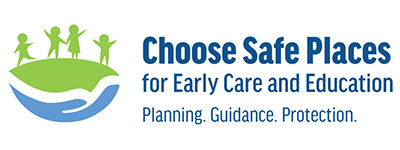
Even when early care and education (ECE) programs meet current state licensing regulations, they may be located in places where children and staff can be exposed to environmental contamination. For example, a new ECE program might inadvertently open in a chemically contaminated industrial building that was never cleaned up, or next door to a business using harmful chemicals. This can put children, who are more sensitive to the effects of chemicals, at risk of health problems. When these issues are discovered after exposures have happened, children may have negative health effects and the programs may be forced to shut down. Preventing problems, by ensuring that ECE programs are safely located, is vital to ensuring the health, economic, and social well-being of families that rely on them and people that staff them.
The Agency for Toxic Substances and Disease Registry (ATSDR) created the Choose Safe Places for Early Care and Education program to encourage thoughtful consideration about where to locate ECE programs. It gives towns, cities, and states a framework to adopt practices that will make sure such programs are located away from chemical hazards.
As part of this program, ATSDR recently released online the Choose Safe Places for Early Care and Education (CSPECE) Guidance Manual, along with a suite of related tools and resources to help states and others learn how they can protect children where they learn and play. The Guidance Manual describes the environmental health implications of siting child care and early learning facilities, explains the elements of ensuring sites are safe, and offers tips and tools for health departments interested in building a child care safe siting program. This document, along with fact sheets, checklists, and other materials, is now available online and can be downloaded for free at the ATSDR website.
In 2017, ATSDR incorporated Choose Safe Places for Early Care and Education (CSPECE) as a key activity in its Partnership to Promote Local Efforts to Reduce Environmental Exposure (APPLETREE) Program, a cooperative agreement program that supports 25 state health departments. Funded states will implement programs to assess the current status of early care and education and environmental exposures in their state, develop partnerships with key stakeholders, implement policies and practices to ensure safe siting, and evaluate their chosen approaches.
